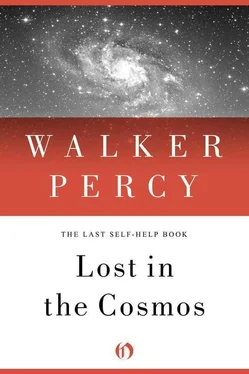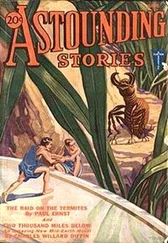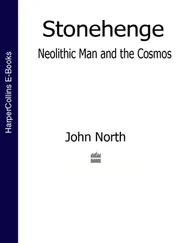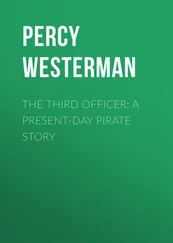The children ran and fell and jumped and fell like the Beatles on a soccer field.
They made for the nearest shade and the nearest shelter — of all things, the ruins of a rest stop on old Interstate 80 between Salt Lake City and San Francisco.
They sat at a picnic table, the returning earthlings, speechless and bemused. The rusting hulks of ancient eighteen-wheelers, Airstreams, and twenty-first-century camper-choppers (helicopters-with-tents) littered the parking area. Close by, the broken concrete of old 1-80 was drifted by salt and sand like a Roman road in Cyrenaica. But a single aspen shaded them, its crisp new leaves shivering and glittering like new money in the rising sun. A single buzzard wheeled high in the sky. As they watched, a green lizard crawled on the table, elbows sprung, cocked an eye at them, and inflated a red bladder.
The earth was alive.
There were also human survivors. And an odd lot they were, the four who rescued the stranded astronauts.
One was Aristarchus Jones, an astronomer who lived in the old SAC headquarters under a mountain at Colorado Springs.
The other three were Benedictine monks from a nearby abbey where Jones had been living for a month.
What was he, Jones, doing here? Why, he had come to meet them. They were expected. Or rather, Jones had years ago come into possession of some documents from the old JPL in Pasadena and had made the calculation that if Copernicus 4 had failed to colonize Barnard’s P1, it would return to earth — ETA: some time in April of this year.
So here he was. In February he had ridden a horse out old I-80 from Denver, taking two weeks, and had been put up by the Benedictines while he searched the skies for Copernicus 4.
The Benedictines? They were even odder. The three were all that remained, the remnant of a thriving community which at its peak, a period of religious revival after the second of the great wars of the twentieth century, had as many as three hundred men.
Now there were three: the abbot, a dried-up old sourdough with a wisp of a beard and a nose like a buzzard’s beak, and a running sore on his forehead; and two black monks, not “black monks” as all black-robed Benedictines used to be called, but black men, Negroes in the old usage, who were monks. Four white monks had died within the decade, of assorted cancers. Black men, it seemed, had the skin melanin to withstand the noxious ultraviolet.
The community had managed to survive, if this odd trio could be called a community, thanks to the prescience of an abbot of the twenty-first century who had foreseen WWIII of the year 2069 and had excavated a huge shelter in the sandstone under the abbey deep enough and well-stocked enough to survive the hundred-year decay time of Cesium 137.
The eighteen astronauts, young and old — the youngest, Sarah, a babe in arms, in the arms of Dr. Jane Smith — took their ease in the monastery garden next to an undistinguished barracks-like church and cloister built of twentieth-century cinder blocks, ugly but durable. The children watched in astonishment as the monks walked in tiny procession, bearing aloft fronds of a desert plant. It was Palm Sunday.
There were also children at the abbey, a dozen or so, mostly genetically malformed and misbegotten: retardates, dolichocephalics (“steeple-heads”) bilateral cleft palates (“wolf-snouts”), armless, legless, depigmented, multipigmented (“harlequins”) — yet a remarkably cheerful and playful lot.
The two groups eyed each other. The first, the earthlings, looking more like visitors from space than the visitors from space: three monks in black, and Aristarchus Jones, a young blond Californian who wore a loose white garment fitted with a hood with eyeholes which protected him from the ultraviolet but made him look like a Ku Kluxer from olden time.
Abbot Leibowitz, ex-physicist, ex-Brooklynite, looked like a shtetl shopkeeper stranded in the Sinai desert for forty years.
The two black monks looked like Amos ‘n’ Andy, one small and sober and smart as Sidney Poitier; the other ponderous, windy, and funny.
The Captain had some questions, while the space children, who after a week had got the hang of earth, climbed trees, pulled grass, shied rocks as if they’d been born to it. They, the space children, after their initial astonishment, got along fine with the “misbegotten,” learned baseball from them, took them aboard Copernicus 4, taught them video-computer games.
THE CAPTAIN: What was it, an M7?
ABBOT: The old war? An M9, I’m afraid.
THE CAPTAIN: How many are left?
JONES AND ABBOT (looking at each other): You mean people?
THE CAPTAIN: Yes,
JONES: We don’t know. Not enough.
THE CAPTAIN: Not enough for what?
JONES: To sustain civilization.
THE CAPTAIN: Well, who do you know for a fact to have survived?
JONES: A couple of thousand in California. Six in Colorado Springs.
THE CAPTAIN: New York?
ABBOT: Don’t know. The last courier on his way to the West Coast said there were a hundred or so on Long Island.
THE CAPTAIN (to Abbot ): What about Asia? Europe? Don’t you have communication with other monasteries? Churches?
ABBOT (shrugging) : Don’t know about Europe. A few Catholics here and there in North America, a few churches, but no bishops.
THE CAPTAIN: The Pope?
ABBOT: Don’t know.
DR. JANE SMITH: Any Methodists?
ABBOT: Very few Methodists.
DR. JANE SMITH (eyeing him) : Jews?
ABBOT (reviving) : Yeah. A young Israeli came through here several years ago looking for his family in San Francisco. He had made a boat and sailed from Tyre, all alone. He said there were several hundred Israelis holed up in the caves of Qumran.
THE CAPTAIN: To get away from the radiation?
ABBOT: No, to get away from the Arabs.
THE CAPTAIN: Are they still fighting?
ABBOT: Yes. But radiation is no longer a danger. Cesium 137 radiation became minimal a hundred years ago.
THE CAPTAIN: Then why hasn’t the species replenished or begun to replenish? Or has it?
ABBOT AND JONES look at each other.
JONES: There’s another problem.
THE CAPTAIN: What?
JONES: Sterility.
THE CAPTAIN: From the Cesium? How could that be? Your parents were not sterile. The lizards and buzzards are not sterile.
JONES: We don’t really know. Maybe a cumulative effect of Cesium in the food chain. Maybe the ultraviolet, maybe a delayed effect of the chemical warfare. Anyhow, it has been slowly progressive until now—
THE CAPTAIN: Now what?
ABBOT: Now we estimate an incidence of 98 percent sterility in humans. There has not been a recorded birth in Utah, Colorado, or California in more than a year.
THE CAPTAIN (looking at Jones): And you?
JONES: Viable sperm count: zero.
THE CAPTAIN (looking at monks, thinks better of it, looks at Jones): You married?
JONES (looking at Tiffany, another blond Californian): No.
MONK AMOS (solemn and a bit platitudinous, like Amos in Amos 'n’ Andy): It’s tragic to see people want children and not be able to have them. What a joy to see these children!
THE CAPTAIN: How about the sexual drive? Is that affected, too, in some people?
MONK ANDY: In very few white folks and no niggers at all.
THE CAPTAIN: Let me get this straight. What you’re saying is that you’re probably the last generation on earth.
JONES: If not this, then the next is the last, surely.
ABBOT (brightening) : Until you came along.
THE CAPTAIN (after a long pause) : Do you have a plan?
ABBOT AND JONES: We have two plans. Two irreconcilable plans. Each involves you. I’m afraid you’re going to have to decide.
Читать дальше












